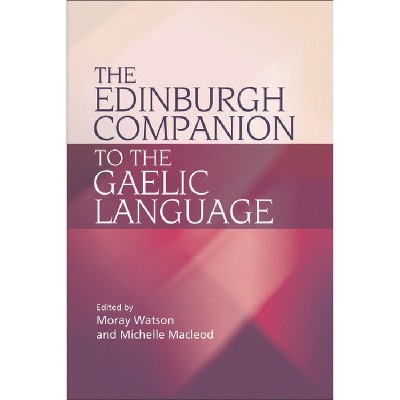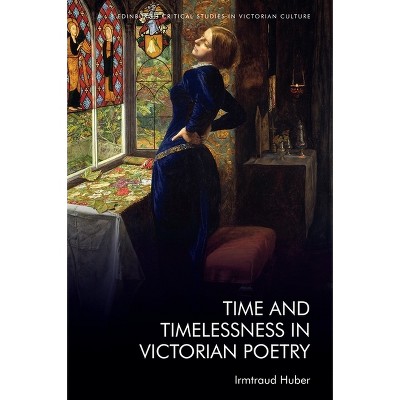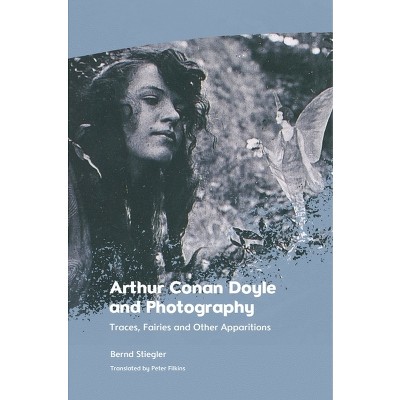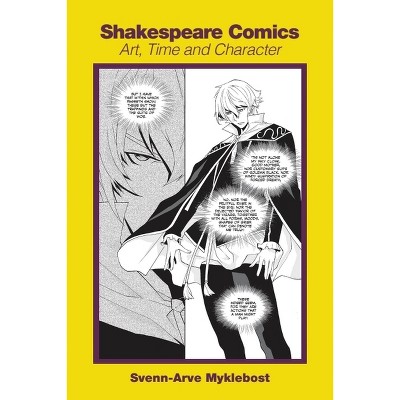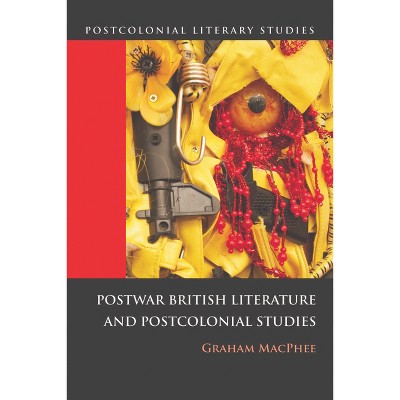Derick Thomson and the Gaelic Revival - by Petra Johana Poncarová

About this item
Highlights
- Derick Thomson was one of the most influential personalities of Gaelic Scotland in the twentieth century.
- About the Author: Petra Johana Poncarová is based at the University of Glasgow.
- 208 Pages
- Literary Criticism, European
Description
About the Book
Explores Derick Thomson's far-reaching influence on the 20th-century revival of Scottish Gaelic
Book Synopsis
Derick Thomson was one of the most influential personalities of Gaelic Scotland in the twentieth century. His poetry counts among the best written in the language; he founded the most important modern Gaelic journal, Gairm, and was the force behind many ventures aimed at the preservation and development of Gaelic. He made major contributions to Gaelic studies as an academic subject and his publications are still indispensable to all working in the field. Thomson's vision of the Gaelic revival is characterised by high standards, organisational and economic shrewdness, openness to second-language users, and broad European outlook.
This is the very first book-length study devoted to Thomson and it explores his career within the context of the history of the Gaelic revival in Scotland and other minority-language movements in Europe
From the Back Cover
Explores Derick Thomson's far-reaching influence on the 20th-century revival of Scottish Gaelic Derick Thomson and the Gaelic Revival focuses in expert detail on the 'other' great 20th-century Scottish Gaelic poet and intellectual. Derick Thomson's poetry ranks with Sorley MacLean's as among the best in the Gaelic language, and he contributed to the preservation and development of the language as an editor, journalist, scholar and activist. As well as founding and steering the most important modern Gaelic magazine, Gairm, he instigated a number of ventures aimed at promoting Gaelic and had major impact on Gaelic studies as an academic subject. His vision of the Gaelic revival is characterised by high aesthetic standards, organisational and economic shrewdness, openness to second-language users, support for Scottish political independence and a broad European outlook. The very first book-length study devoted to Thomson, this monograph explores his career within the context of the Gaelic revival in Scotland and other minoritised-language movements in Europe and examines his thoughts on the current and future state of the language as articulated in essays, articles, poems and short fiction. Key features and benefits Based on previously untranslated sources Introduces the scholar and activist who was the driving force behind influential initiatives aimed at promoting Gaelic Offers a fresh European perspective on the subject, from an author with a command of Gaelic who is herself not Scottish Incorporates a multifaceted approach that brings together Derick Thomson's cultural and political activism, poetry and scholarship Examines Thomson's engagement with other countries, especially Ireland and Wales, and with other figures, including Alexander MacDonald (Alasdair Mac Mhaighstir Alasdair), James Macpherson and Ruaraidh Erskine of Mar Written with regard to international audiences and relevant for both Gaelic speakers and readers without a command of Gaelic Enables the incorporation of modern Gaelic writing into comparative literature in Europe Petra Johana Poncarová is based at Charles University in Prague, Czech Republic. She translates from Gaelic into Czech and her award-winning Czech edition of Tormod Caimbeul's Deireadh an Fhoghair is the first complete translation of the iconic novel into any language.Review Quotes
From its outset, Poncarová's monograph represents a significant achievement: a culmination of more than a decade's meticulous incremental scholarship and a fitting exploration of the breathtaking corpus of work and activism, for Gaelic and for Scotland, produced by one of the twentieth century's greatest intellectuals and creative writers, Derick Thomson (Ruaraidh MacThòmais).--Kate Louise Mathis, University of Edinburgh, and Michel Byrne, University of Glasgow "https: //muse.jhu.edu/article/945012"
an engaging and accessible book--Dr Proinsias Ó Drisceoil, author of Seán Ó Dálaigh: Éigse agus Iomarbhá "Comhar"
Petra Johana Poncarová's probing but accessible new study of Thomson's role in the modern Gaelic revival makes an important addition not only to our understanding of Thomson's personal contribution but also to the surprisingly understudied field of modern Gaelic cultural history more generally. [...] Derick Thomson and the Gaelic Revival is a valuable and original contribution to our understanding of Gaelic history in the twentieth century and how Thomson combined political commitment, organisational energy and artistic integrity to defend and promote his language and culture.--Wilson McLeod, Emeritus Professor of Gaelic, University of Edinburgh "The Bottle Imp"
Lucid, thoughtful and comparative: the scale of Derick Thomson's achievement is now clear thanks to this Czech scholar's extraordinary work.
--Murray Pittock, University of GlasgowAn enriching and hugely readable evocation of one of Scotland's most influential yet underappreciated literary figures. Derick Thomson's impact across poetry, academia, publishing, and language activism has been significantly undervalued - until now. This is the most stimulating book on Gaelic literature I've read in years. If only more of modern Scotland's writers' contributions were explored with such an edifying blend of diligent research, intellectual lucidity, and human understanding.--Kevin MacNeil, University of Stirling
About the Author
Petra Johana Poncarová is based at the University of Glasgow. Her publications include Scotnote Study Guide The Gaelic Poetry of Derick Thomson (Association for Scottish Literary Studies, 2020) and a number of articles on twentieth-century Scottish literature. She also translates directly from Gaelic into Czech and her award-winning Czech edition of Tormod Caimbeul's Deireadh an Fhoghair is the first complete translation of the iconic novel into any foreign language. Derick Thomson and the Gaelic Revival is her first monograph.






